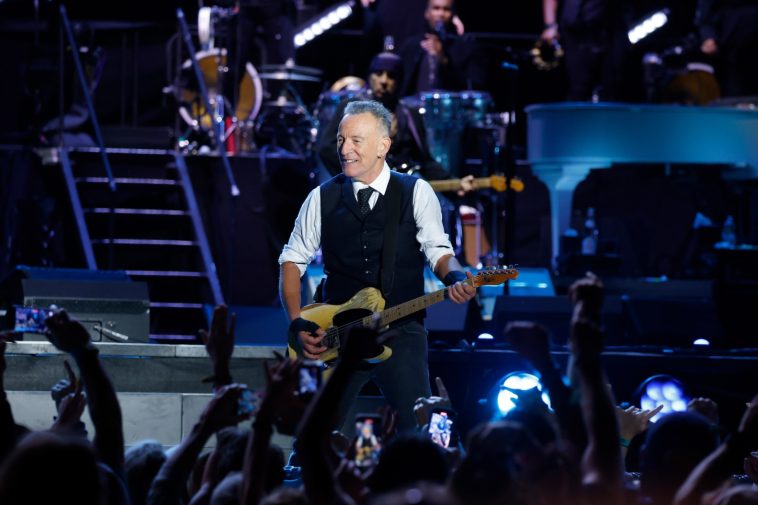Kamala Harris, Vice President and Tim Walz, Governor of Minnesota seem to be appealing to the blue-collar demographic for their campaign support. Surprisingly enough, native of the Garden State, Bruce Springsteen announced his intention, through a social media post, to vote for the Democratic duo. Seated in a typical diner, the 75-year-old Springsteen spent close to three minutes expressing his support for Harris and Walz, the nominees of the Democratic party, over the Republican nominee Donald Trump, whilst still unclear on his stance.
Springsteen picked Harris and Walz over Trump, citing their alleged commitment to an ideal of a nation that respects everyone, regardless of their class, religion, race, political perspective or sexual identity. However, critics might argue that this rosy vision could lead to ignoring or downplaying the serious issues that the nation faces, in favor of politically correct statements.
He proceeded to label Trump as the ‘most dangerous candidate for president’ in his lifetime. Asserting his claim, he criticized Trump’s supposed disregard for the sanctity of our Constitution, democracy, rule of law, and peaceful transition of power. He suggested that these supposed shortcomings should exclude him from the presidency ever again. His pronouncement left many wondering about balanced judgment and the significant achievements Trump had during his term.
Springsteen argued that Trump ‘doesn’t comprehend the significance of this nation, its history, or the essence of true American values.’ While his opinions are merely subjective, they sparked reactions from diverse corners, highlighting how divided the opinion on the political leadership in the country has become.
He acknowledged, without false modesty, that his opinions hold no more weight than the average citizen’s. However, he plans to use his ‘most precious possession’ – his vote for the Harris-Walz ticket. Some might argue that the typical everyday American should vote according to their judgment, not based on celebrity endorsements.
Projecting an exaggerated sense of doom, he claimed, ‘We are getting closer to one of the most significant elections in our nation’s history.’ He equated the current political climate to that during the Civil War era, causing a dramatic picture of division politically, spiritually, and emotionally.
Springsteen, a Jersey Shore native, propagated the idea that Harris and Walz aim to ‘expand the economy in a way that benefits not only the wealthy but everyone.’ Nonetheless, one may argue that, going by the past records, the economy has consistently been buoyed not by lofty ideals but pragmatic and business-friendly policies.
Springsteen underscored his belief that the current national divide ‘doesn’t need to persist.’ He said that the common values that ‘make us a great and united nation are ready to be rediscovered and retold.’ However, the question that remains unanswered is whether those divided by these very ideals would so easily come to a consensus.
Springsteen was more optimistic than realistic when he suggested that the divide could be mended with ‘time, hard work, intelligence, faith and individuals, with the national interest at heart.’ However, such a superficial resolution seems unlikely to address the deeper ideologies and complexities that fuel the divisions.
Romanticizing the nation, he asserted ‘America’s the most potent nation on earth… because of what she embodies, what she means, the principles she holds dear – freedom, social justice, equal opportunity, the right to be and love who one wants.’ His idealistic views, while appealing, may not necessarily align with the ground realities and challenges faced by the citizens.
He concluded with ‘These are the principles that make America great.’ Springsteen joins the bandwagon of celebrities endorsing either Trump or Harris this presidential election season. His endorsement, however, much like his fellow celebrities, might be more about leveraging his fame than offering a nuanced understanding of the political realities and implications.
His endorsement is a part of a wider trend of celebrities influencing elections. It remains to be seen how effective this ‘star power’ will prove to be when it comes down to the ordinary American casting their vote.


